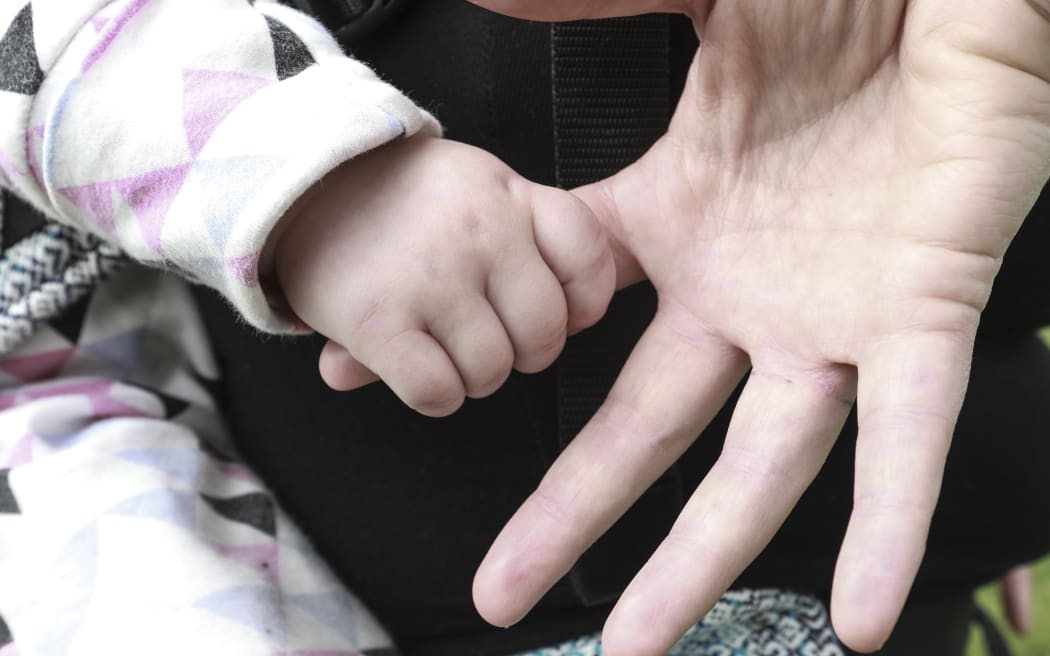They're invisible in the workplace, put through hurdles by government systems, and often feel isolated socially. What will it take for single parents to thrive?

Photo: RNZ / Rebekah Parsons-King
You would think that in 2023, the stigma of being a solo parent would be a thing of the past.
But as a new report outlines, we are far from that.
The report, the Mako Mama Mangopare Single Parents Project, talked to 3500 single parents. It wasn't about trying to find out what the problems were - groups in this sphere know what they are - it was an attempt to find solutions for those problems.
Carried out by Project Gender in conjunction with Ngāti Kahungunu, it came up with 82 recommendations that would make life better for single parents, including the 73,560 people receiving the sole parent benefit, in New Zealand.
Some need legislative changes, but others are little tweaks in processes, systems and attitudes that would make immediate differences.
But the report's authors say a fundamental shift is required in how the government, businesses and society think about and engage with single parents.
Emma Donnelly was one of those involved with the focus groups in the exercise. She found wading her way through government systems - having fled a violent relationship, with no money or possessions and a 10-month-old baby under her arm - frustrating, to say the least. That included not being told by Work and Income about help she was entitled to.
"A lot of times people would be, 'well that was your fault, you're actually entitled to this and you should have looked into it', but if you don't know it exists...you don't know where to look, to even begin to start," she says.
Another criticism is that the various departments you have to interact with have no connection to or communication with each other, so those seeking help are set up to fail.
It wasn't just bureaucrats Donnelly was battling - discrimination came from all directions, including landlords.
"I would ring up to find out where the property was and what time [viewings were]," she says, "and they would vet me. When they found out I was a single mum, they would tell me that the house wasn't for me, and they'd refuse to tell me what time or whereabouts the viewing was. I couldn't even apply for those properties."
Donnelly says it would also be helpful if employers could show single parents the same flexibility as they showed to workers during the pandemic. One of the changes the report recommends, for example, is not holding meetings after 3pm.
"A lot of people have stigmas around employing a single mum," she says. "I was told I should be grateful for a lot of the positions I was over-qualified for, and that I'd even been considered for them."
One of the biggest issues is childcare - the lack of it, the expense of it, and the worth placed on caring for children.
The Detail also speaks to the director of Project Gender, Angela Meyer.
She says solo parents want to be seen, and to be celebrated.
Even though she works in this sector, Meyer was surprised by the level of stigma and discrimination facing single parents across all aspects of their lives.
"Obviously when the DPB [Domestic Purposes Benefit, in 1973] came out there was a lot of spying on people, and calling the authorities on women who had men in their house...but I was genuinely surprised about how deep that stigma still is, and how pervasive it is."
Find out more about how we could better support single parents in the full podcast episode.
You can find out how to listen to and follow The Detail here.
You can also stay up-to-date by liking us on Facebook or following us on Twitter.

Photo:


